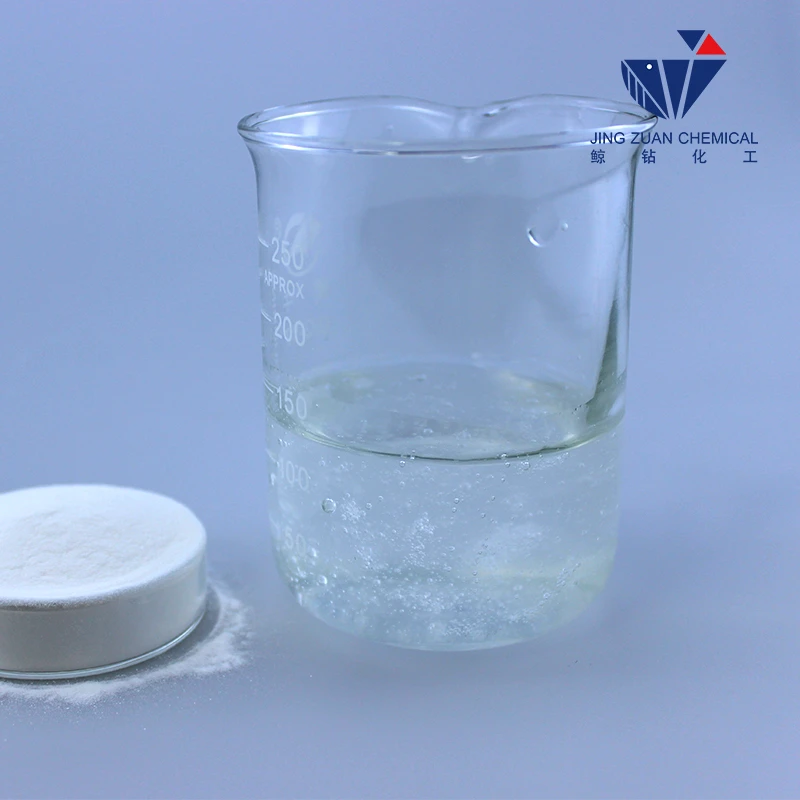
Oct . 14, 2024 01:40 Back to list
use of hydroxyethyl cellulose
The Use of Hydroxyethyl Cellulose Applications and Benefits
Hydroxyethyl cellulose (HEC) is a non-ionic cellulose ether derived from cellulose, a natural polymer found in the walls of plants. As a key ingredient in a variety of industries, HEC has gained significant attention due to its unique properties, including thickening, binding, film-forming, and water retention capabilities. This article discusses the multifaceted applications of hydroxyethyl cellulose and its advantages across various sectors.
Industrial Applications
HEC is widely used in the construction industry, particularly in cement-based formulations. Its ability to improve the workability of mortars and plasters makes it indispensable for construction materials. It enhances the spreadability of these mixtures, allowing for smoother application and better adhesion to surfaces. Moreover, HEC helps retain moisture in the mixtures, promoting improved curing and reducing the risk of cracking. This leads to more durable and robust structures, vital for long-lasting construction.
In the paint and coating industry, hydroxyethyl cellulose is employed as a thickening agent, helping to achieve the desired viscosity and stability of paint formulations. By preventing sedimentation, HEC ensures an even distribution of pigments and additives, resulting in a smooth application and uniform finish. Additionally, it helps improve the leveling properties of paints, making them easier to apply and allowing them to dry evenly. These characteristics contribute significantly to the overall quality and performance of decorative and protective coatings.
Cosmetic and Personal Care Products
The cosmetic industry also heavily relies on hydroxyethyl cellulose. In skincare and cosmetic formulations, HEC is utilized for its gelling and thickening properties. It serves as an effective stabilizer in emulsions, contributing to the creamy texture found in lotions, creams, and gels. Its ability to retain moisture makes it a valuable ingredient in hydrating formulations, ensuring that products deliver moisture effectively to the skin.
Moreover, HEC is commonly used in hair care products. It acts as a film former, providing a light hold for hair styling while also enhancing shine and manageability. Its compatibility with other ingredients is another advantage, allowing formulators to create effective products without compromising performance.
use of hydroxyethyl cellulose

Pharmaceutical Applications
In the pharmaceutical industry, hydroxyethyl cellulose is recognized for its role as a pharmaceutical excipient. It is used in various dosage forms, including tablets, gels, and ointments. Its binding properties help to ensure the uniform distribution of active ingredients, improving the overall efficacy of pharmaceutical products. HEC also functions as a controlled-release agent, allowing for a gradual release of medications over time. This is particularly important in enhancing patient compliance by reducing the frequency of dosing.
In eye care formulations, HEC is utilized as a lubricant. Its ability to retain moisture and provide a protective layer over the eye's surface makes it valuable in artificial tears and other ocular products. HEC reduces dryness and irritation, enhancing comfort for individuals who suffer from dry eye conditions.
Food Industry Applications
In the food industry, hydroxyethyl cellulose serves as a thickening and stabilizing agent in various products, from sauces and dressings to dairy and bakery goods. Its use contributes to improved texture and mouthfeel, enhancing the overall sensory experience. Additionally, HEC can serve as a fat replacer, offering a healthier alternative in specific food formulations without sacrificing palatability.
Conclusion
Hydroxyethyl cellulose is a versatile and essential ingredient across numerous industries, from construction and cosmetics to pharmaceuticals and food. Its unique properties, including thickening, binding, and moisture retention, contribute significantly to the performance and quality of various products. As industries continue to evolve and innovate, the demand for hydroxyethyl cellulose is likely to grow, highlighting its importance in formulating high-performance, reliable products that meet consumer needs. The continuous exploration of HEC's applications and benefits promises to unlock even more potential in the future.
-
The Widespread Application of Redispersible Powder in Construction and Building Materials
NewsMay.16,2025
-
The Widespread Application of Hpmc in the Detergent Industry
NewsMay.16,2025
-
The Main Applications of Hydroxyethyl Cellulose in Paints and Coatings
NewsMay.16,2025
-
Mortar Bonding Agent: the Key to Enhancing the Adhesion Between New and Old Mortar Layers and Between Mortar and Different Substrates
NewsMay.16,2025
-
HPMC: Application as a thickener and excipient
NewsMay.16,2025
-
Hec Cellulose Cellulose: Multi functional dispersants and high-efficiency thickeners
NewsMay.16,2025







